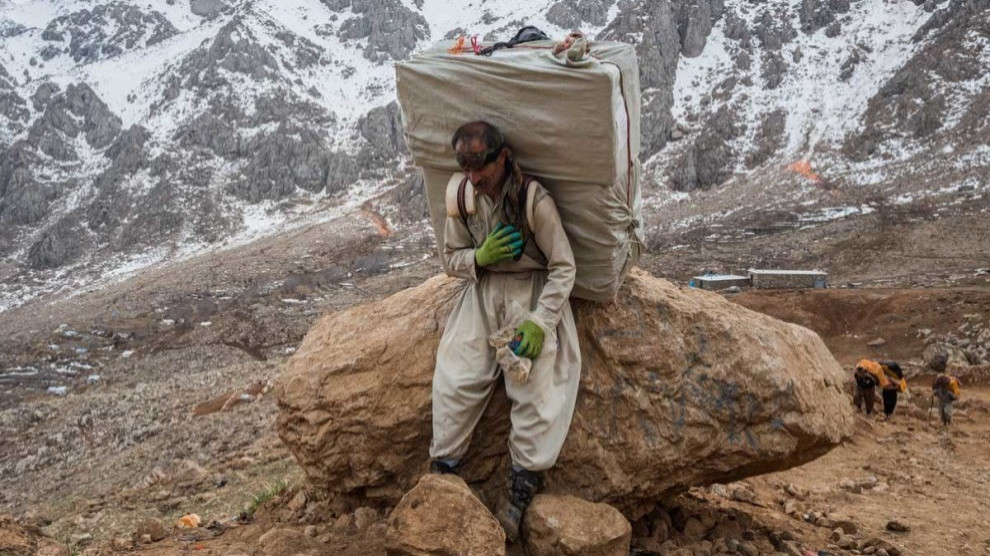Iranian forces kill two more kolbars in border area
Kolbars live from carrying loads across the dangerous borders in Kurdistan taking dangerous routes to earn their living through trade between Northern, Southern and Eastern Kurdistan.
Kolbars live from carrying loads across the dangerous borders in Kurdistan taking dangerous routes to earn their living through trade between Northern, Southern and Eastern Kurdistan.

The Iranian regime continues to take brutal action against Kurdish kolbars. At least one kolbar loses his life or is injured per day in the border area between Southern, Eastern and Northern Kurdistan.
According to Kolbarnews, 22-year-old Mahmoud Moradi was shot dead by Iranian revolutionary guards on Sunday in the Iranian-Iraqi border area near the town of Bane. Moradi married only three weeks ago and made his living from border trade. The town of Bane is only 21 kilometres to the Iraqi border.
On Saturday evening, Iranian regime forces opened fire on a group of kolbars in the border area between the villages of Nokan and Kanî Zerd near the city of Urmiya. Mohamad Ebrahim Zade, father of three, was killed in the attack.
The tragedy of kolbars
Eastern Kurdistan has descended deeper into poverty through the years due to deliberate policies by the Iranian regime and stands out as one of the poorest regions in Iran. Compared to other regions, the area has seen significantly less investment and development has been deliberately curbed. Agriculture and industry weren’t allowed to develop, and as a result unemployment rose to highest in Iran.
Faced with policies of discrimination, oppression and impoverishment, carrying smuggled goods is not a choice but a must for survival.
Kolbar comes from the Kurdish words, “kol” (back) and “bar” (load). Kolbars make their living carrying loads along the perilous border line. Their loads include cigarettes, mobile phones, cloths, housewares, tea and seldomly alcohol. They walk through dangerous terrain to continue this trade between Southern and Eastern Kurdistan. The goods they bring are sold at high prices in Tehran, but the kolbars who risk their lives for them are paid very modestly.
The intermediaries who take the deliveries and find buyers in cities are called kasibkars.
Kolbars and kasibkars range from 13 to 70 years old. Some only finished elementary school, while others are university graduates. They carry loads, because they can’t find any other employment. In the last 5 years, some 300 kolbars and kasibkars were killed in cold blood. There are no absolute statistics available for the deaths.
RELATED NEWS: